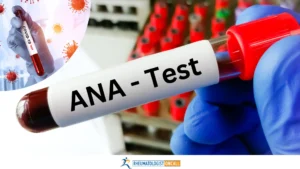SHARE
In the early days of the COVID-19 pandemic, we focused primarily on respiratory symptoms. However, as a rheumatologist with over 20 years of research and clinical experience, I’ve observed something far more complex: COVID-19’s profound impact on our immune system, particularly its ability to trigger positive ANA tests. This discovery has significant implications for understanding both COVID-19 and autoimmune conditions.
What is an ANA Test?
Before we explore the COVID-19 connection, it’s crucial to understand what an ANA test actually measures. An Antinuclear Antibody (ANA) test is a standard blood test that screens for autoimmune disorders. It detects antibodies that your immune system may produce against your body’s tissues. Think of it as an early warning system for autoimmune conditions. While not all positive ANA tests indicate disease, they warrant careful attention and monitoring.
The COVID-19 Connection
In my clinical practice over the past four years at Rheumatologist OnCall, I’ve observed a striking pattern: many COVID-19 patients are developing various autoantibodies, with ANA being particularly common.
The numbers are compelling – research shows that 30-60% of people with a COVID-19 history develop positive ANA tests, with severe cases showing even higher rates.
Beyond ANA: Other Autoantibodies
What’s particularly interesting is that we’re seeing a range of autoantibodies, including:
- Anti-dsDNA, commonly seen in patients with lupus
- Anti-TPO, widely seen in patients with autoimmune thyroiditis
- Anticardiolipin antibodies, commonly seen in patients with antiphospholipid syndrome, a clotting disease
- SSA and SSB widely seen in patients with Sjogren’s Disease
- SCL-70, commonly seen in patients with systemic sclerosis
Research Findings
Recent studies have revealed fascinating patterns:
- A notable Canadian study found peak ANA levels at 3 months post-COVID recovery, followed by a gradual decline
- Severe COVID cases consistently show higher rates of ANA positivity than mild cases
- Stanford University research led by Dr. PJ Utz indicates that natural infection triggers a broader antibody response than vaccination.
Natural Infection vs. Vaccination
The immune response to COVID-19 varies depending on how the body encounters the virus. Our immune system faces multiple viral proteins during natural infection, leading to a more comprehensive antibody response. In contrast, vaccines target specific viral components, particularly the spike protein, resulting in a more focused immune response.
Clinical Implications
At Rheumatologist OnCall, we’ve observed antibody development in various scenarios:
- After natural COVID-19 infection
- Following vaccination
- In cases where previously undetected antibodies become apparent after vaccination, especially when patients experience symptoms
The Autoimmune Risk
The relationship between COVID-19 and autoimmune diseases is complex. While most patients won’t develop autoimmune conditions, those with genetic predispositions may be at higher risk. In my practice, I’ve diagnosed several post-COVID cases of Rheumatoid Arthritis (RA), Psoriasis, and Psoriatic Arthritis (PsA).
When to Seek Professional Evaluation
Consider seeking evaluation if you’ve had COVID-19 and experience:
- Persistent joint pain
- Unexplained fatigue
- New skin rashes
- Muscle weakness
- Ongoing inflammation
Looking Forward
While we’re still in the early stages of understanding these connections, several key studies provide valuable insights. Research conducted at significant institutions worldwide continues to explore the long-term implications of COVID-19-induced autoantibodies. Don’t wait to seek professional evaluation if you’ve had COVID-19 and are experiencing unusual symptoms.
At Rheumatologist OnCall, we offer comprehensive autoimmune testing, expert interpretation of ANA results, personalized treatment plans, and ongoing monitoring. If you are in doubt and your tests show a positive ANA, do not hesitate to contact us.














